What is futures trading
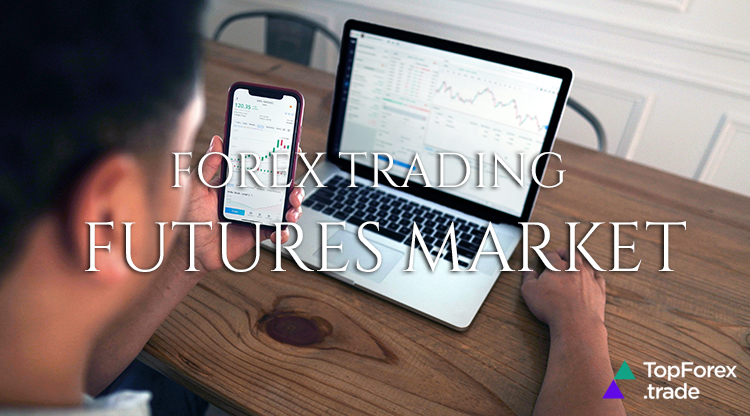
Futures are a type of derivative contract that allows you to buy or sell an asset at a predetermined price at a later date. Currencies, commodities like soybeans, coffee, oil, companies’ stocks, Cryptocurrencies, and a variety of other assets could be traded via futures. Also, they can be used by a variety of financial players, including investors and traders, as well as companies who want to physically deliver or provide the commodity.
A futures market is a “playground” where traders and investors can purchase and sell futures contracts, being opposed to other financial instruments known as spot contracts. In a typical futures contract, one party agrees to acquire a specific number of assets or commodities and take delivery on a specific date while the contract’s selling party agrees to supply it.
Another distinctive feature is that futures contracts are only valid for a certain time before they expire. Each market has its own expiration sequence that runs throughout the year and frequently extends into the following year. Futures traders must either quit their active position or roll their position to a later date before a contract expires, which extends the expiration time. This is known as rolling a contract.
How futures trading works
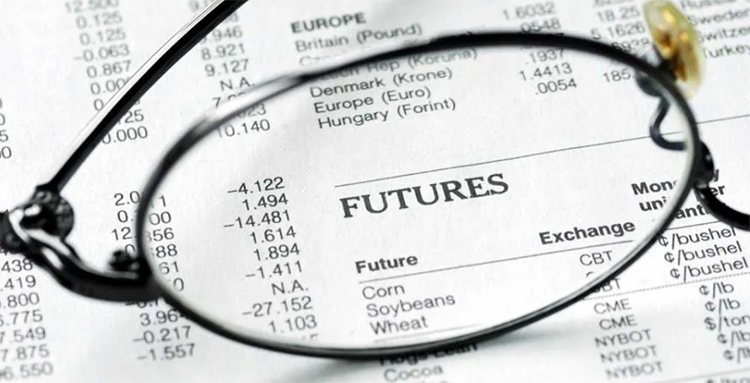
As you probably already got it, futures contracts allow market players to lock in a price and protect themselves against wild price movements (both up or down) in the future.
Let’s consider jet fuel as an example of how futures work:
To avoid an unexpected surge in jet fuel prices, an airline firm could purchase a futures contract committing to buy a fixed amount of jet fuel for delivery in the future at a preset price.
A fuel distributor may sell a futures contract to assure a steady market for fuel and to protect themselves from sudden price drops. Both parties agree on specified terms: to buy (or sell) 3 million gallons of petroleum in 90 days at $2 per gallon, managing their exposure to price fluctuations.
However, not everyone in the futures market wishes to trade a product in the future. These individuals are futures investors or traders who seek to profit from price movements in the contract itself. If the price of jet fuel rises, the futures contract becomes more valuable, and the owner of that contract may be able to sell it for a higher price on the futures market. These traders can purchase and sell futures contracts without intending to take delivery of the underlying commodity; they are only in the market to speculate on price movements.
There is a busy and somewhat liquid market for these contracts, with traders, investors, hedgers, and others buying and selling on a daily basis.
How to use futures for profit?
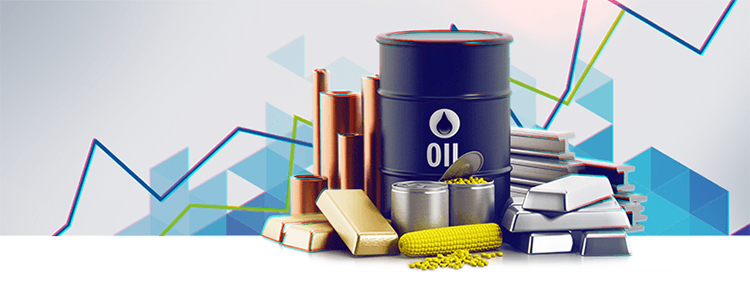
Traders and investors refer to futures as an asset class as a whole. However, there are other types of futures contracts that can be traded, including:
- Futures contracts on commodities (crude oil, natural gas, corn, wheat, etc.);
- Futures contracts on stock indexes with underlying assets like S&P 500 Index;
- Currency pairs (Forex) futures;
- Gold and silver (or other precious metal) futures;
- Treasury futures for bonds and other financial assets in the United States;
The exchange on which the futures contract trades will determine whether the deal is for physical delivery or can be settled in cash. Parties may enter into a physical delivery contract in order to secure the price of a commodity required for production. Many futures contracts, however, involve traders who play on the price fluctuations. These contracts are closed out or netted (the difference between the initial trade and the closing trade price) and settled in cash.
A futures contract allows a trader to play in the direction of the price of a commodity. If a trader purchased a futures contract and the commodity price rose and was trading above the initial contract price at expiration, the trader would benefit. The futures contract— the long position —would be sold at the current price before expiration, closing the long position.
The difference in prices would be paid in cash in the ones’ brokerage account, with no real product being moved. However, if the asset’s price falls below the purchase price stipulated in the futures contract, the trader may lose.
Traders can also take a short speculative position if they believe the underlying asset’s price will fall. If the price falls, the trader will enter an offset position to close the contract. Again, the net difference would be settled after the contract’s expiration. An investor would profit if the underlying asset’s price was lower than the contract price and lose if the current price was higher than the contract price.
It’s vital to realize that trading on leverage allows for a considerably larger position than the brokerage account allows for. As a result, margin investing can magnify earnings while also magnifying losses.
Consider a trader with a $5000 brokerage account and a $50000 position in crude oil. If the price of oil goes against the deal, it might result in losses significantly above the $5000 initial margin amount. In this instance, the responsible broker, regulated by credible financial authorities would warn a client about the potential hazards, and issue a margin call, requesting the deposit of extra funds to cover the market losses.
Futures VS Forwards contracts trading
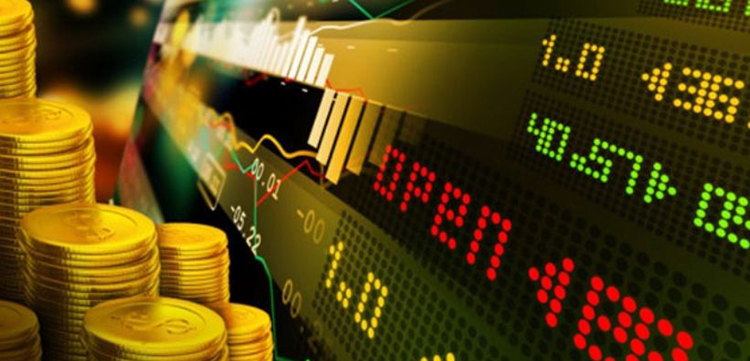
People frequently misinterpret these two types of contracts as both of them are delivered at a defined point in the future. However, if you delve a little deeper, you will discover that these two differ on several pretty important points.
First, a forward contract’s terms are agreed upon between the buyer and seller. As a result, it is adaptable and may be customized. A futures contract, on the other hand, is one that is market-standardized in terms of quantity, date, and delivery.
A forward contract is an agreement between two parties to buy and sell the underlying asset at a specific price on a future date. A futures contract is a legally binding agreement in which the parties agree to acquire and sell an asset at a preset price and on a future date.
Thus, as the agreement is confidential in nature, there is a greater risk of a side defaulting on a forward contract. Unlike a futures contract, which involves clearing houses and insurances for transactions, the potential of default is almost nonexistent.
Forward contracts are traded over the counter (OTC), which means there is no secondary market for them. A futures contract, on the other hand, is traded on regulated securities exchanges and may be bought and sold as a financial asset itself.
However, there is no need for collateral in forward transactions, but an initial margin is required in futures contracts.
Summing up, a forward contract’s credit risk is larger than that of a futures contract. Forward contracts can be used for both hedging and trading, but because they are custom-made, they are better for hedging. Futures contracts, on the other hand, are appropriate for trading as an asset itself.
Benefits of trading in futures contracts
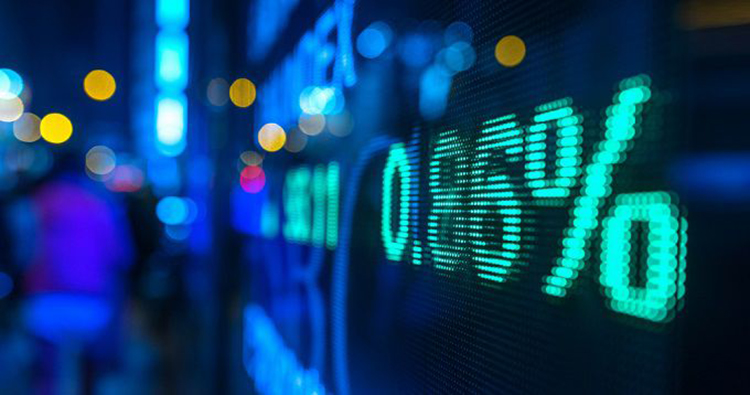
Futures trading has three key advantages: the leverage you get and the risk reduction it offers.
Futures trading with leverage and margins
Unlike trading equity, buying futures does not require full payment: only a proportion of the whole contract value is required to open a deal. This percentage is known as margin and its value between different financial instruments. Usually, with the same amount of money, you can buy/sell more futures than actual assets. For example, if the margin for futures in stock is fixed at 25%, one might buy/sell 4x more shares in futures than in equity. This is referred to as leverage. Thus, with a margin of 25%, the leverage is 4 The use of leverage is a two-edged sword as profits are multiplied many times over, but also your risks.
If a stock futures contract has a leverage of 4, it suggests that earnings would be four times greater than equity profits. If the equities deliver a 25% profit, the futures give a 100% return as futures are purchased for a fraction of the price (again, margin).
Hedging and risk management
Futures contracts can be used to hedge and manage the risks brought by the underlying asset’s price movement. Rather than speculating, the purpose here is to avoid losses from potentially unfavorable price swings. Many companies that participate in hedges use—or, in many circumstances, produce—the underlying asset.
A coffee bean farmer, for example, might utilize futures to lock in a set price for selling their harvest as they reduce their risk and ensure they will obtain the predetermined price by doing so. If the price of coffee fell, the farmer would profit from the hedge, offsetting losses from selling the maize at the market. With such an offsetting gain and loss, the hedging successfully locks in an acceptable market price.
High liquidity of futures
Futures markets are usually quite liquid, which makes it easier to execute a trade fast and at the desired price. Futures prices are less subject to significant price swings when there are numerous buyers and sellers. As a result, positions can be initiated and liquidated quickly without having a large impact on price.
Top Forex brokers for futures trading
Futures trading is a method of asserting and playing on, or hedging against, the future value of various assets, such as currencies, stocks, bonds, and commodities. Trading futures can provide far more leverage than trading equities, enabling higher returns.
Just like with any other financial instrument, Fundamental analysis (make sure to follow up on major political and economic affairs as they are constantly covered by news outlets and debated on social media) and Technical analysis are the most helpful for navigating new markets. If you understand how futures markets function and how they could fit into your portfolio, they can add welcome diversification to your assets.
Use free demo accounts supplied by reliable brokers to test your trading approach with popular exchange pairings or other instruments, where you may get current market quotations for your deals and a selection of Forex trading indicators. You’ll also be able to see market dynamics in real-time and become acquainted with trading tools and terminology.
The Forex brokers listed below have been serving their clients for decades and adhere to the criteria of the world’s most stringent financial regulators, allowing traders to trade currency pairs as well as other financial instruments such as Cryptocurrency under some of the best trading conditions available (including various Forex bonuses, Copy trading, swap-free Islamic accounts, or free VPS services for extra-secure trading).
OANDA Futures trading
OANDA, a respectable US-originated broker with millions of clients worldwide and a long history of operations, has built a fantastic reputation among users over more than two decades while simultaneously complying with a plethora of global authorities.
As it offers demo accounts, extensive teaching tools, and market data with no minimum deposit requirement, the broker is a fantastic choice for beginning traders. There are frequent Forex bonus promo campaigns, as well as low commissions and spreads, a diverse range of trading derivatives for instruments like Forex, Indices, Commodities, and Crypto including Bitcoin and Ether, advanced trading platforms, and the broker’s own mobile app.
AvaTrade Futures trading
AvaTrade is a broker noted for offering competitive rates on a wide range of assets, including currency pairs (both spots and futures), commodities, indices, stocks, CFDs, Cryptocurrencies, and many others. Among the trading platforms available are MT4, MT5, Proprietary, AvaSocial, AvaTradeGo, AvaOptions, and WebTrader. If you are a frequent trader who does not want to be tethered to a computer, AvaTrade mobile trading is for you.
AvaTrade, for example, offers a wide choice of automated trading platforms and tools that novice traders can utilize to boost the profitability of their transactions. One of them is Ava’s original Copy Trading feature – AvaSocial, which enables you to replicate the results of successful traders you select and benefit in the same way they do.
A strong regulatory framework can be added to AvaTrade’s benefits. It is regulated by MiFID, ASIC, the FSA and FFA, the FSB, IIROC, and the FSCA. AvaTrade has offices in practically every country, as well as cross-continent regulatory coverage.
XM Group Futures trading
XM Group is a global online Forex broker with over 1000 trading products available on the MT4/MT5 platforms, including over 55 currency pairings, metals, commodities, and equities. The broker also offers a mobile app that allows you to trade in foreign markets with a single login, whether you’re using a demo or a live account.
Furthermore, the broker provides a virtual private server (VPS) service, which enables clients to fully experience all of the benefits of trading with XM without having to worry about other factors that can delay or disrupt high-quality transactions, such as Internet connection speed or power outages.
One of the many benefits of the XM Group is that deposits and withdrawals are free: the broker covers all payment system commissions. The most profitable trading accounts with negative balance protection, good leverage, Forex bonuses (the exact amount depends on the clients’ region) and tight spreads include Micro, Standard, XM Ultra Low, and Shares. To safeguard the safety of traders globally, the broker is regulated by CySEC, IFSC, DFSA, and ASIC.
HF Markets Futures trading
HF Markets (formerly known as HotForex in some regions) is a well-known broker that provides accounts for a variety of purposes and multiple trading instruments, including Micro, Premium, Fixed, VIP, and Zero Spread accounts. For gold trading the broker offers the most competitive spreads and no hidden commissions, allowing you to trade the metal in the ultimately favorable environment.
The well-known financial terminals MT4 and MT5 are available for Windows, iOS, MacOS, and Android in desktop, web, and mobile versions with the addition of a VPS service and the HFcopy – the original Social trading feature. The latter will assist beginners by emulating professionals, while experienced traders will be rewarded for their efforts.
HF Markets is regulated in the EU and operates in full conformity with CySEC, as well as in the UK under the supervision of the FCA and in Dubai under a DFSA license.
Forex futures trading explained - FAQ